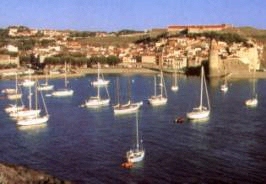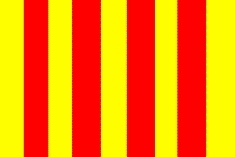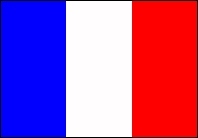Not far from Rosas is the border town of Le Perthus. It lies on a Col on the Pyrenees where, it is said, Hannibal practiced mountain crossings with his elephants before going on to Italy. This town is where the French come to buy their alcohol at ‘duty free’ prices and little else is on sale except fresh meat, casual clothes, leather goods and Spanish specialties for aperitifs. During the season, garden plants and oranges are a good buy. Le Perthus consists of a main road, sloping down to the border crossing. The shops are arranged all along the Spanish side of the road, and little on the French side, the border strictly speaking running down the center of the road.


